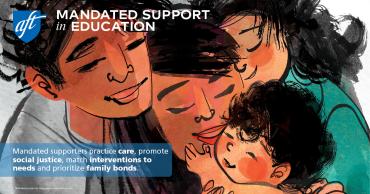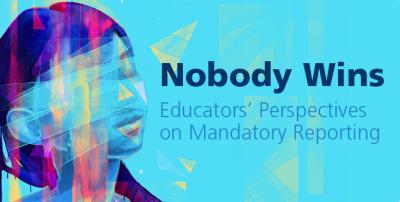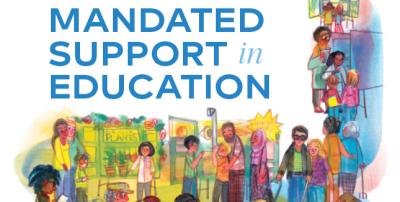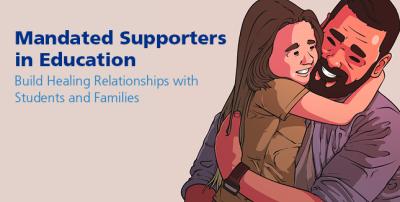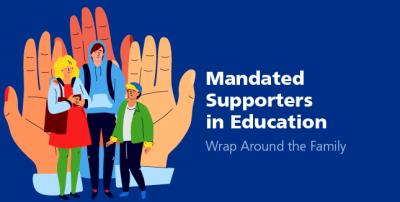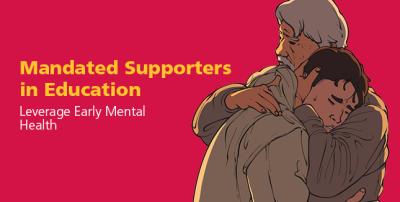Mandated Support in Education
“Once kids’ physical and emotional needs are met, they are ready to learn.” —Randi Weingarten, AFT president
For decades, educators have questioned mandatory reporting. Does the requirement to report any possible trauma in the homes of our students actually help children and their families? In every instance? When might reporting kick off a cascade of possibly harmful consequences? Many educators have been dismayed to see the intrusive surveillance, coercion and painful family separation that sometimes result from mandatory reporting, especially among marginalized families. What is truly best for our students?
Every year, educators make hundreds of thousands of reports to Child Protective Services. Indeed, every fifth report in the United States comes from the education workforce. After screening, investigation and substantiation, just 10 percent of educators’ reports are verified. For children who are labeled victims of maltreatment, family separation and placement in foster care is a common intervention. In fact, on any given day, the proportion of children in foster care is larger than the proportion of adults who are incarcerated. In state care, they face higher risks of physical and sexual abuse than they did at home.
Many stakeholders are dissatisfied with CPS outcomes and processes. The term “mandated support” was coined by JMacforFamilies and structures efforts to transform CPS with shared goals:
- Eliminate unnecessary reporting
- Elevate prevention over lagging intervention
- Elevate compassion over compliance grounded in fear or punishment
- Elevate family support over family separation
Featured Resources
To facilitate a transition from mandatory reporting to mandated support we must understand our current landscape. Here we present insights from a 2024 national survey with University of California, Irvine, of more than 1,000 school staff, and review data that informs a mandated support agenda: wraparound services, family engagement, student education, professional development and policy change.
To facilitate a transition from mandatory reporting to mandated support we must have a vision for the role of schools and educators in effective maltreatment prevention and intervention. This article – and the sidebar on “The Trauma of Family Separation" – review the data on why we need to change, as well as what we know works.
Acting as a mandated supporter will require new skills and new resources. This action framework outlines eight steps and use-right-now tools, including a checklist of protective factors, a script for consultation to aid ethical decision-making when considering whether or not to make a formal report, and a plain language one-pager to share with caregivers about their rights if engaged by the child protective services system.
This research and action brief with Healthy Schools Campaign explores the powerful role that building relationships plays in student success to prevent youth substance use and reviews Parents United for Healthy Schools Initiative.
This research and action brief with the George Washington University Center for Health and Health Care in Schools explores an escalating preventive approach to protect students’ emotional well-being and reviews examples from the Saint Paul Federation of Educators as well as Montgomery County (Md.) Public Schools.
This research and action brief with Mental Health America explores school-based early mental health intervention and reviews examples that center the vulnerable, from Meriden, Conn. to Minneapolis Public Schools and across the state of Kansas.
The Coalition to Support Grieving Students shares four tips to help kids whose family members are not living with them or active in their families, such as due to foster care placement, deportation, incarceration or divorce/separation.
More information
- Watch a free, on-demand webinar to quickly review national research, including key findings from "Nobody Wins.” Plus, hear evidence-based strategies for effectively addressing child maltreatment and access new tools from AFT partners.
- Learn new skills to support student healing and resilience with AFT’s graduate-level professional learning on trauma-informed practices
- Watch AFT members introduce the framework with AFT President Randi Weingarten in this free, on-demand webinar.

